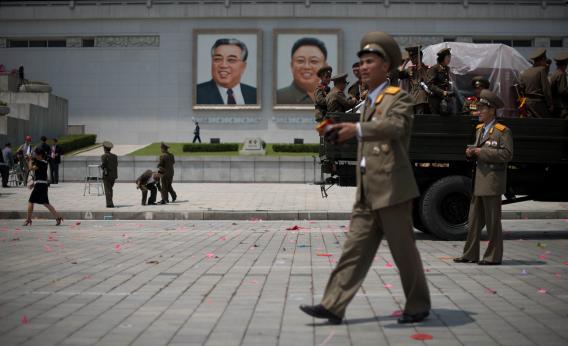Somewhat overshadowed by the rest of today’s Syria news have been reports that a North Korean ship carrying gas masks, arms, and ammunition was apparently seized in Turkey earlier this year. “US authorities believe that the ship was intending to unload its cargo in Turkey and send it overland to President Bashar al-Assad’s regime,” according to Sankei Shimbun, a Japanese newspaper known for its North Korea coverage.
This is just the latest in a long series of reports of cooperation between the two countries stretching back long before the current war. Most notable was the nuclear reactor that North Korean technicians were reportedly helping Syria construct until it was destroyed by an Israeli airstrike in 2007. The North Koreans also apparently helped Syria cover up evidence of the facility after its destruction.
A 2010 U.N. report suggested that North Korea was continuing to provide nuclear and ballistic missile technology to Syria and Iran. There have also been suggestions that the two countries have cooperated on the development of Scud missiles. When a North Korean ship carrying weapons was seized while passing through the Panama Canal last month, arms trafficking experts noted that the vessel had put in a stop in 2009 at Tartus, the Russian port on the Syrian coast.
In keeping with much of the news out of both countries, some reports are tough to verify, such as the recent South Korean media claims that North Korean officers are advising the Syrian government and that chemical weapons materials are being transferred between the two.
More publicly, the two countries have cooperated on the diplomatic stage, partnering with Iran in March to prevent the adoption of U.N. treaty regulation in the international conventional arms trade. As it happens, they’re also both among the five countries that haven’t signed on to the Chemical Weapons Convention.
